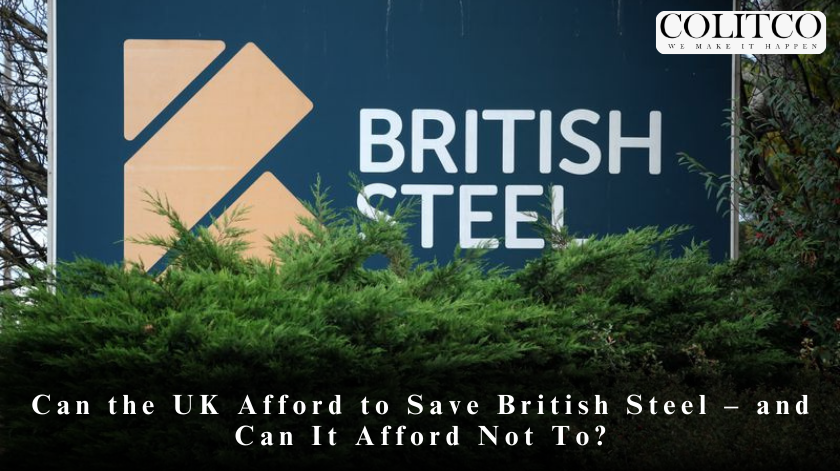As British Steel teeters on the brink, a high-stakes standoff between the UK government and its Chinese owner, Jingye, may finally be reaching a conclusion. Sources close to the discussions have described it as a question of “who blinks first,” with furnaces nearly out of coal and time running out.
In a historic move, Parliament is expected to vote to grant Business Secretary Jonathan Reynolds the authority to intervene directly—effectively taking control of operations to keep the steel fires burning in Scunthorpe. The decision marks a turning point in the Labour government’s stance on industrial strategy, embracing interventionism to save an industry vital to the UK’s economic and national security.
Taxpayer Funds Now on the Line
Even before the weekend’s action in Parliament, the government had offered funds to buy coal, trying to persuade Jingye to stay on board. At one point, the owners reportedly requested a billion-pound bailout—without any firm guarantees on jobs or the plant’s future.
That deal didn’t materialize. While Labour’s move doesn’t change ownership immediately, it signals a clear willingness to commit taxpayer money to keep the industry afloat, with the potential for nationalisation now looming large.
Will Nationalisation Be the Inevitable Outcome?
Though the government has stopped short of confirming nationalisation, insiders say the direction is clear. Two sources familiar with internal conversations suggest Prime Minister Sir Keir Starmer has accepted that bringing British Steel back into public hands may be the only viable path.
The logic is multifaceted. The UK cannot hope to grow its economy, ramp up defence production, or invest in critical infrastructure without a domestic steel industry. Letting the Scunthorpe plant fail would leave the UK as the only G7 nation without primary steel-making capability—an outcome deemed unacceptable.
Also Read: Sky Blooms: Full Pink Moon and Micromoon to Light Up April Skies
Financial Hurdles Ahead
Yet, saving British Steel is not without enormous financial implications. The current blast furnaces are nearing the end of their functional life and would require billions in investment to modernize or replace.
Experts estimate that building modern electric arc furnaces could cost around £3 billion each, and Scunthorpe might need two. Additionally, soaring industrial energy costs present another barrier, which government may also need to address to ensure long-term viability.
Political Momentum Meets Economic Reality
Labour’s decision to step in dovetails with its broader ideological shift. The government has signaled that the age of passive globalisation is over. In its place, a new doctrine is emerging—one that values domestic production, economic sovereignty, and active state intervention in key industries.
Treasury Minister Darren Jones recently declared “globalisation is over,” underscoring a renewed focus on national resilience. Saving British Steel, then, is not just an economic necessity—it’s a political imperative that aligns with Labour’s evolving worldview.
Cross-Party Scrutiny and Support
The decision has stirred both support and criticism across the political spectrum. Conservative leader Kemi Badenoch lambasted the government’s “incompetence” in handling the crisis, while Liberal Democrat leader Sir Ed Davey called for a long-term industrial strategy. Reform UK’s Nigel Farage and the Green Party both advocated for immediate public ownership, arguing temporary measures won’t suffice.
It’s not the first time British Steel has found itself in this position. The company has swung between public and private ownership for decades, and many industry veterans see this moment as part of a larger cycle. But with global supply chains strained, and industrial strategy back in vogue, nationalisation feels less taboo than ever before.
Beyond Emergency Measures
Passing emergency legislation is just the beginning. Long-term solutions will demand clarity on financing, energy policy, and investment strategy. As one industry insider put it: “Ownership matters again—but the costs are staggering.”
The Treasury has yet to publish any formal estimates, but insiders suggest any plan must fit within the current fiscal framework. That could prove tricky, as Chancellor Rachel Reeves remains committed to strict spending rules—even as the steel crisis demands bold investment.
Redefining Britain’s Economic Identity
For Sir Keir Starmer, the steel saga also serves as a chance to redefine his leadership. Previously criticized for backtracking on pledges around public ownership, Starmer now faces a political moment where reviving British manufacturing and safeguarding jobs could become a defining achievement.
As MPs prepare to vote, the stage is set for a dramatic shift in how Britain views its industrial base. While many questions remain—chiefly, who pays and for how long—the symbolism is clear: Labour is betting on steel, and perhaps on a new economic era.












